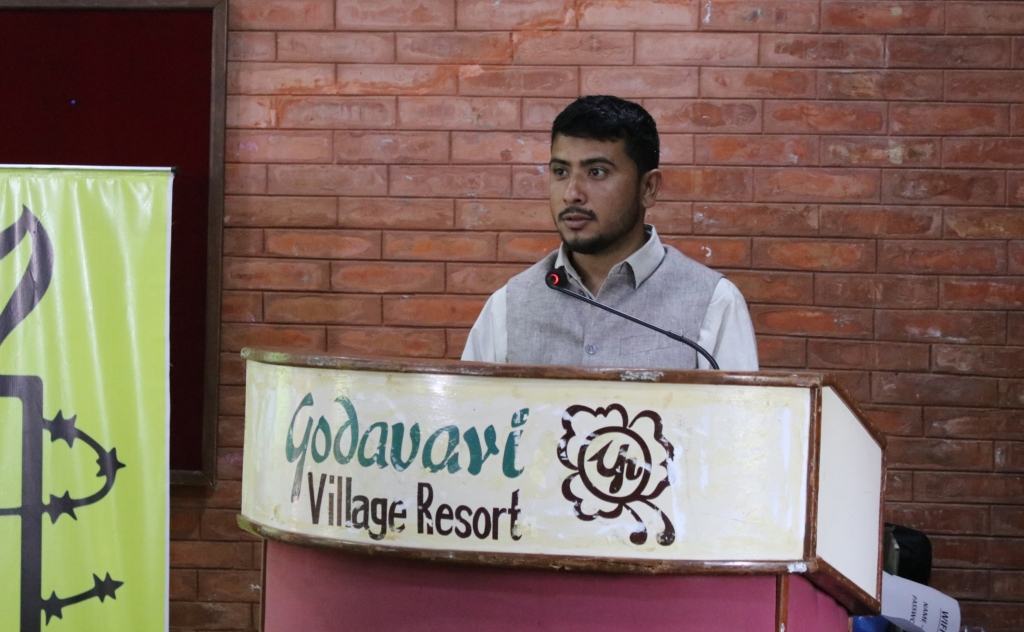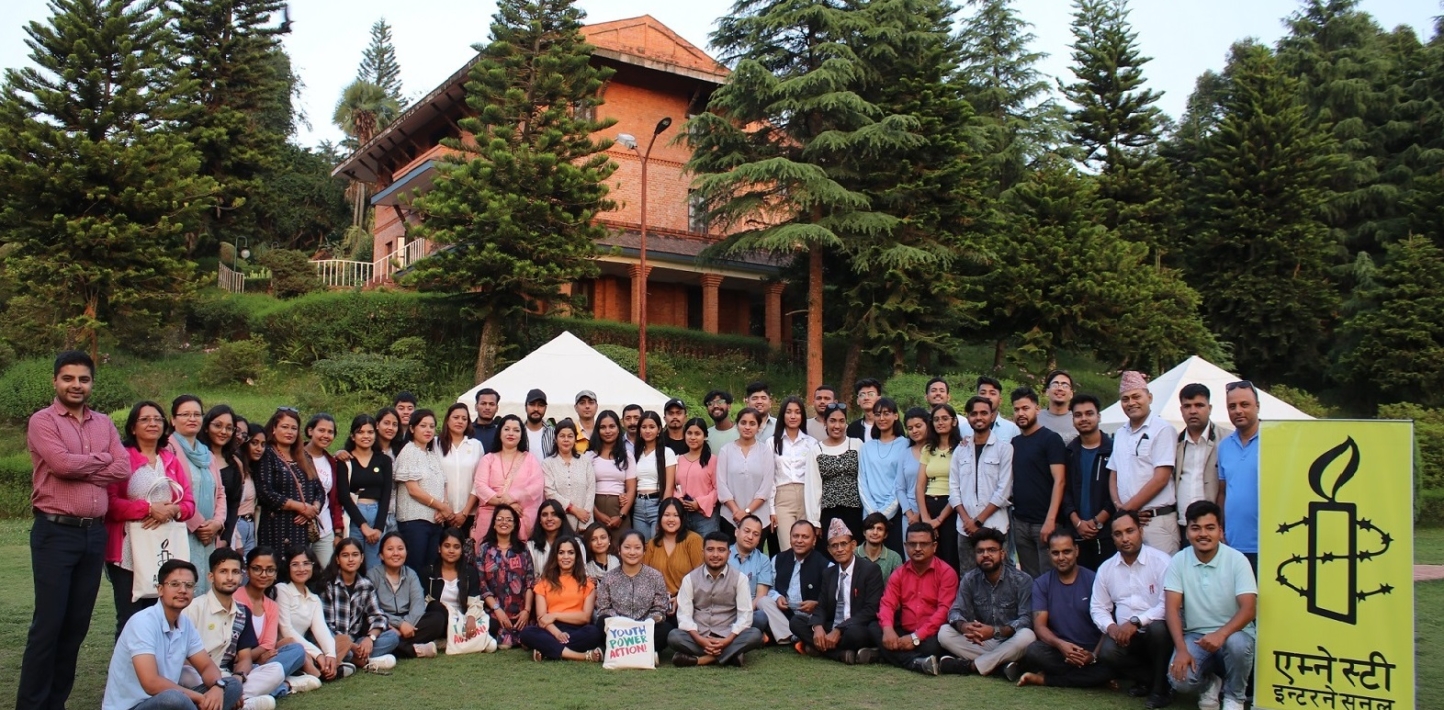Since its inception, Amnesty International Nepal has emphasised human rights education as a keystone in emboldening human rights and empowering people through knowledge. It is with this intention that AI Nepal organises its Master Training of Trainers (MToT) program at regular intervals to impart human rights education to its members.
This year too, AI Nepal organized a two-day training program was with an objective to engaging AI Nepal members towards building knowledge on crucial human rights issues of our time and to mobilize them to educate others including fellow AI members, students and people in society.
From over 200 enthusiastic applicants, a total of 65 participants from across the country were selected for the training program which was held from June 1 –2 in Lalitpur, Bagmati province.
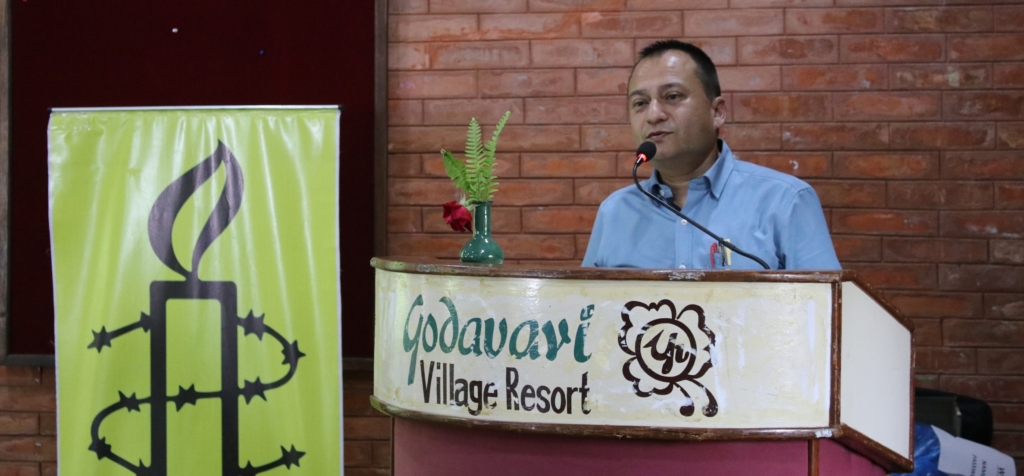
Welcoming all participants, Hom Bahadur Adhikari, Deputy General Secretary of the AI Nepal board, said, “AI Nepal has always worked on highlighting issues of grave human rights violations. In the past few months, AI Nepal has carried out various discussions that have highlighted issues such as data privacy and protection, climate change, transitional justice, among others. I am sure this program too will be just as educational and impactful.”
Following the DSG Adhikari’s welcome remarks, the director of AI Nepal, Nirajan Thapaliya shed light on the objective of the event.
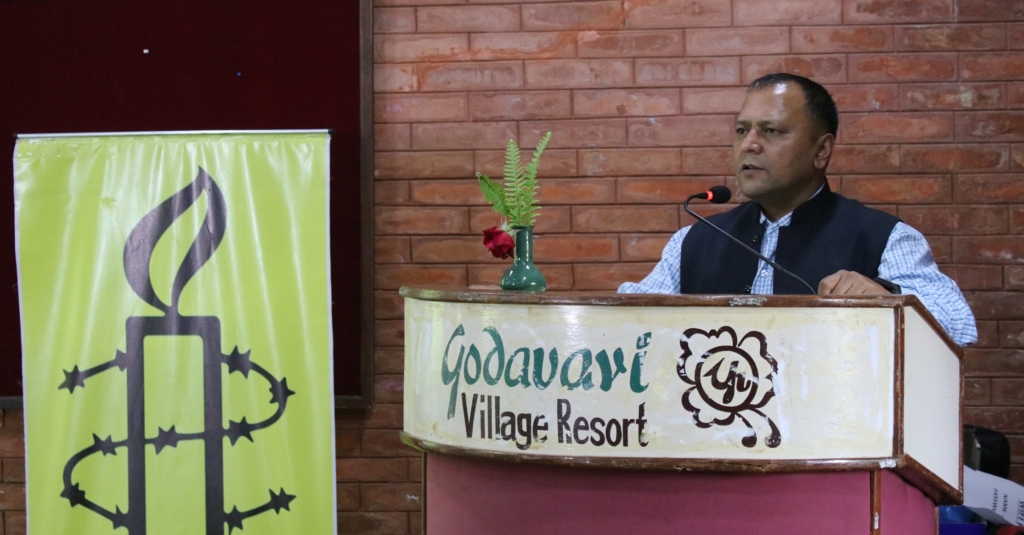
“The core of what Amnesty International does is to hold the government accountable and voice people’s right to enjoy and exercise universally accepted human rights. But we cannot do that if we don’t know what our rights are, and it is our responsibility and duty as a human rights organisation, and human rights defenders, to just do that – to educate people about their rights. We started the MToT series in 2018 in order to reach out to as many people as possible with the hope that they would do the same. The heart of this organisation is its members’ and their mobilization, engagement and involvement in human rights activism, and that is what we hope to do with this program,” he said.
AI Nepal Chairperson Bipin Budhathoki also stressed on how AI Nepal members can contribute to Amnesty’s human rights goals, the problems and challenges that exist and the way forward.
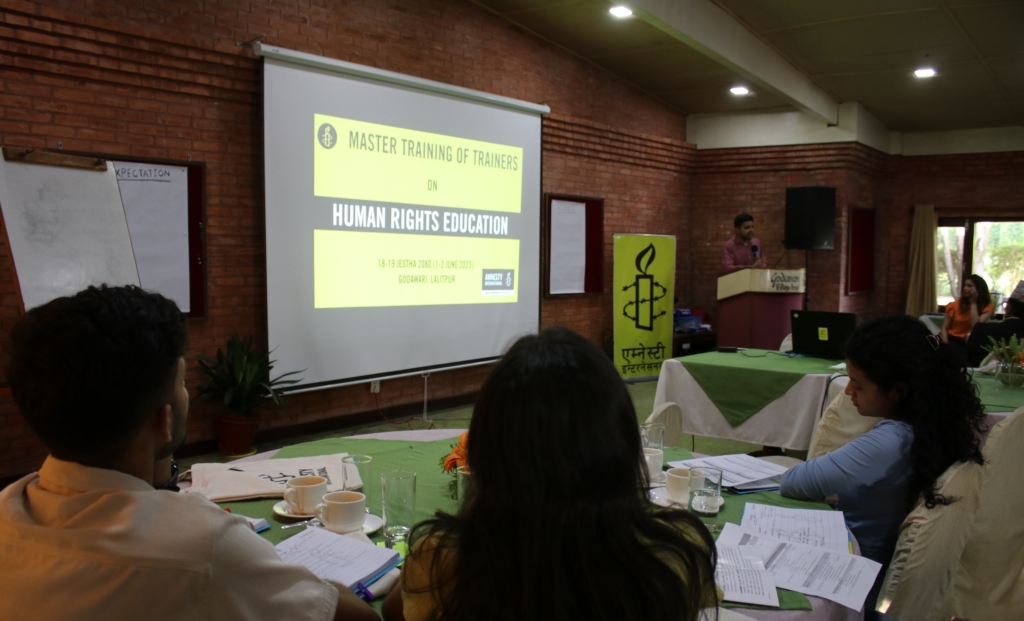
The welcome session was followed by an introduction session into human rights education. This was then followed by a screening of a documentary “Neelophool” which touched on the rights of members of LGBTQIA+ community – a key gender campaign issue.
The second day of the two-day workshop focused on sessions that introduced to participants the basics of human rights, climate justice and human rights, transitional justice, sexual harassment and gender-based violence, adequate housing, etc.
Laxmi Aryal, Program and Training Manager of Women’s Rehabilitation Centre (WOREC), spoke about various issues plaguing gender discrimination, especially gender-based violence, issues of consent, sexual harassment and exploitation, patriarchal structures, intersectionality, zero tolerance on sexual exploitation, among others.
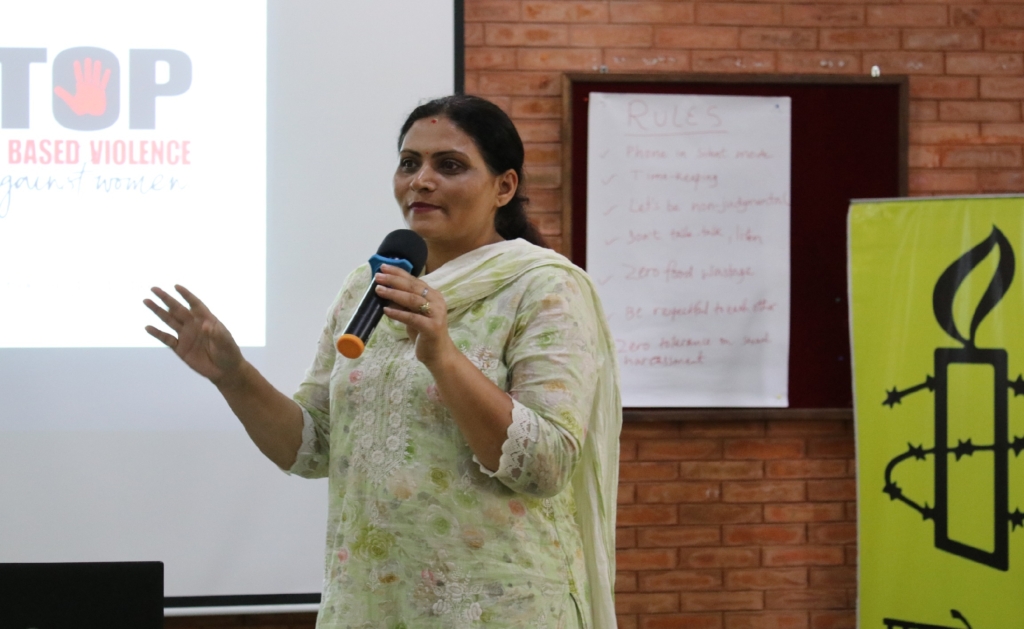
“When we talk about human rights and equality, we must look at it from a wide intersectoral perspective that considers all people – irrespective of their gender. We especially must look at people on the margins. We must look at people who have little to no access to their rights, in terms of their gender, economic accessibility, physical disabilities, class, caste,” said Aryal.
AI Nepal’s Campaigns Coordinator Ashmita Sapkota also delivered a session on the right to adequate housing, speaking also about forceful eviction, and its direct corelation with abuse of power and holding the government accountable.
The two-day workshop ended with group work and peer skill-sharing discussion in which members shared their targets and commitments. Representatives of participating groups and youth networks committed to reaching out to a total of 20,000 individuals in their respective communities.
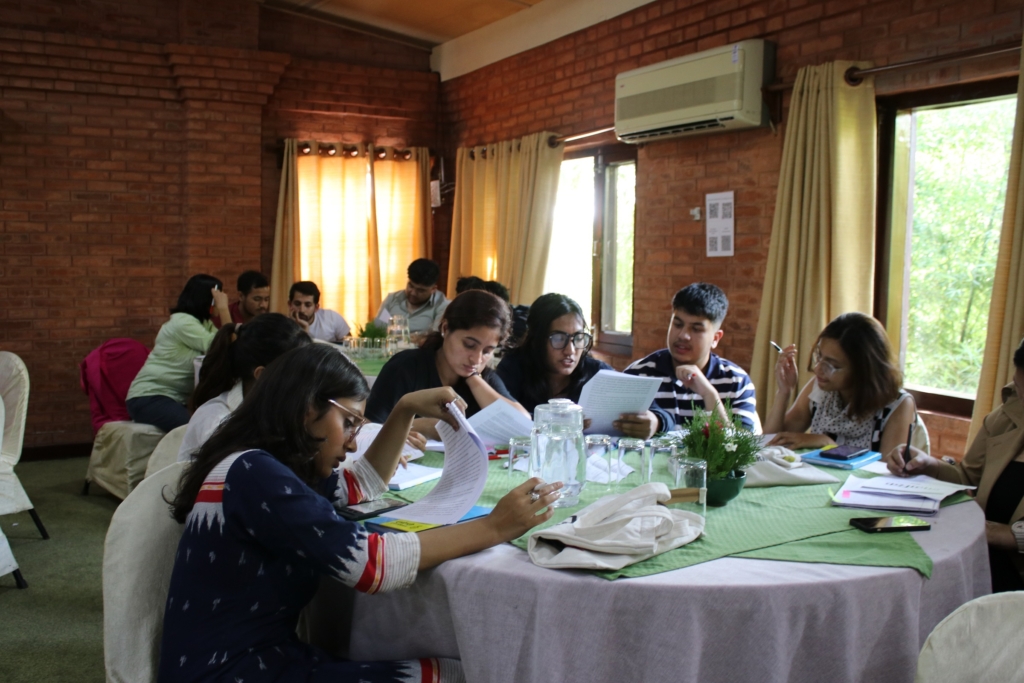
This was followed with an explorative session where participants discussed the scope and possibility of carrying out human rights education beyond schools and colleges.
Closing the program on a note that urged participants to self-reflect, AI Nepal Chair Bipin Budhathoki said: “All of us have to really think about how the AI movement can be strengthened in Nepal. Especially as we take forward our membership reformation process, we must think how our 8,000 members can be best mobilized to work on the campaigns that are at the heart of the Amnesty movement. There is so much that we can do together.”
